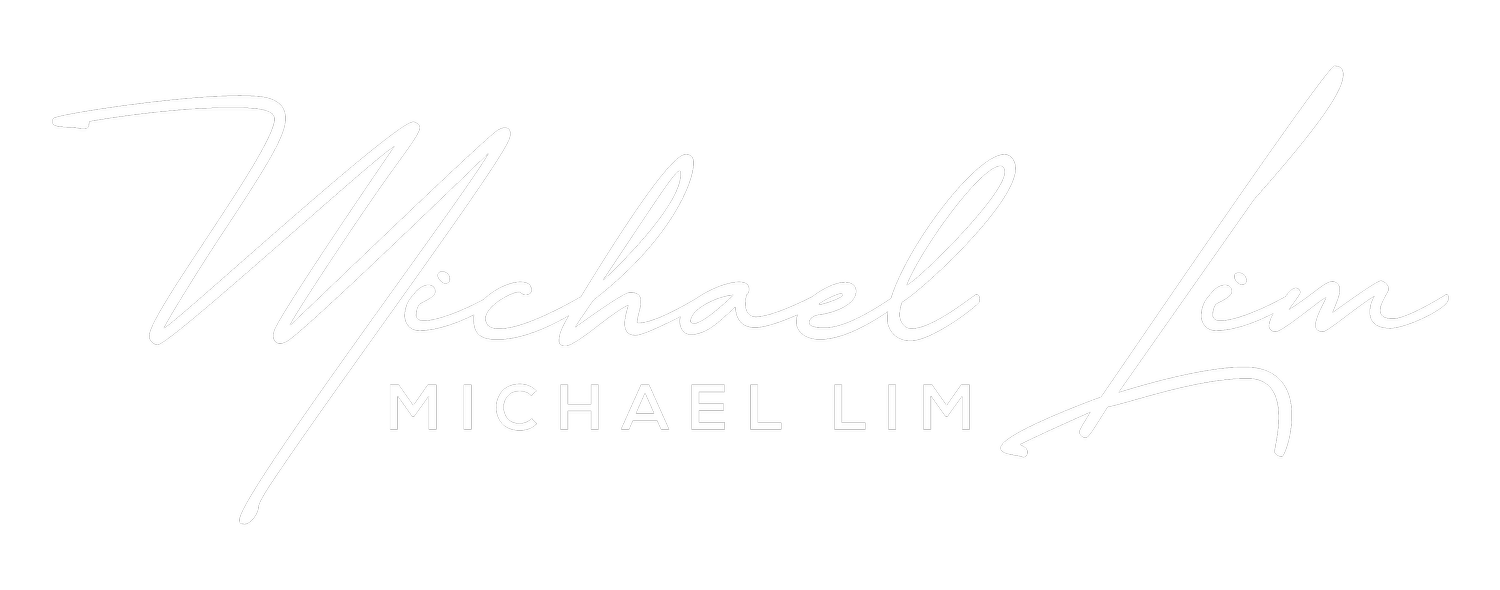My Boring and Lazy Strategy to Retire a Multi-Millionaire
A proven strategy for creating long-term wealth as a millennial under 30 years old
If you’re looking for a get-rich-quick scheme, this article is not for you.
Just remember that if someone is promising to make you rich, they are getting rich off you. And the fastest way to lose your money is by trying to make a quick buck.
Beware of any $3,000 coaching program or courses promising you a fortune. No mentor, guru, or coach will make you rich. And if they could, do you really think they would want to share it with everyone on the internet?
But do you know what will make you rich?
Your daily financial habits.
Tell me how and where you spend your money today, and I can tell you where you’ll be in 10 years. Not because I am an oracle, but your financial freedom is a lagging measure of your financial discipline.
I’ve recently turned 26 years old, and it seems that all my peers are obsessed with the latest and greatest investment — cryptocurrency, NFTs, betting on the weather, etc.
They are excitedly cashing in their money in the hopes of timing a down period and hitting a spike. Selling on a high and bragging about their investment prowess. But even a stopped clock is right twice a day.
As I write this, cryptocurrencies (Bitcoin in particular) fell by more than $1 trillion AUD.
This isn’t investing; it’s gambling. We’ve seen the impact of what media hype, lack of regulation, and investor speculation can do. Do I need to remind you of the 2008/09 financial crisis?
And while every investment goes through peaks and troughs, I am more concerned with the thinking behind their decisions rather than the investment asset itself.
The amount of wealth you enjoy will be determined by the quality of your decisions. Being correct 10% or 20% more of the time could result in you making millions or nothing at all.
While my friends are constantly asking: what new investments might make me rich? I am asking myself: what investments have proven to make people rich? What won’t change 50–100 years from now?
Despite the stock market having a 100-year history of returning an average of 10%, most of my friends are not investing in it. They aren’t making use of the greatest leverage available to them: time.
So I decided to put together some thoughts on my investment strategy that is simple and accessible. I am not a financial advisor, and this is not financial advice. This is advice from a simple guy interested in personal finance.
1. Retirement Fund
I will retire a multi-millionaire. And here’s how:
This is a screenshot from a hypothetical managed funds calculator.
My initial assumptions are:
$60,000 initial investment (I’ve been contributing to my retirement fund since I was 15)
The annual contribution of $10,000 (through my employer contribution)
Conservative return of 8% per year
Management fee of 1% (quite high)
The retirement age currently in Australia is currently 65. This calculator will only let me go for 30 years, so I’ll be 56 years old and will already have 1.3 million dollars. And as we all know, compound interest returns the most at the end.
I could theoretically have $2–3 million by age 65. I can almost bet the age of retirement will also be redefined to be 70 years by that point. Everyone keeps saying that the 70s are the new 60s.
This is all theoretical, of course. But it demonstrates the power of compounding and starting early. I don’t have to do any other work from now until I am 65 to retire with a couple of million dollars in the bank.
My workers (my money) will be doing all the heavy lifting for me.
2. Dollar-Cost Averaging investing into low-cost Vanguard Index Funds for a long time
Similar to the above. Here is another screenshot:
My initial assumptions are:
$30,000 initial investment
The annual contribution of $2,600 ($100 x 26)
Conservative return of 8% per year
The fee management cost of 0.2%
Obviously, I won’t have a million dollars in 30 years. But this projection is based on my current salary and ability to dollar-cost-average $100 every fortnight.
Assuming my income will rise as I age and develop new skills and experiences, I am planning to increase my investment rate while keeping the lifestyle inflation to a minimum.
For instance:
My initial assumptions are:
$30,000 initial investment
The annual contribution of an average of $10,000 over 30 years
Conservative return of 8% per year
The fee management cost of 0.2%
By age 56, combined with my retirement fund, I’ll be a multi-millionaire. At this point, I can switch from reinvesting my dividends to start to pay out my dividends in cash to fund parts or all of my lifestyle.
3. Creating a high savings rate
It is not about how much you make but rather how much you’re willing to save. And notice I said ‘creating’ rather than ‘having a high savings rate? Because saving, like investing, is a skill you need to learn.
Here are the simple steps to creating a high savings rate:
Aim to save 30-50% of your after-tax income.
Minimize your lifestyle inflation.
Learn to ignore your peers and to keep up with the Joneses.
Aim to have yearly expenses around $25 — $35k
Your daily savings habit today can have an enormous impact on your financial health later. The difference of saving $50 a month could make the difference between retiring a millionaire or not.
One useful mental trick I use is that I don’t think of not spending money as my ‘savings’ I see it in my mind as ‘investing in my freedom.’ The change in mindset is highly effective. Every dollar I save is a dollar closer I am to financial freedom.
“The money you save in your 20s is worth exponentially more than the money you save in your 30s or 40s.
If you go onto a compound interest calculator, you can see that the $1 you save in your 20s is worth $21.71 by the age of 60.
Whereas if you save that same dollar when you are 30, it will only be worth $10.06 when you are 60” writes Juliet Collados
4. Detaching time and value through the internet
I don’t like using the word passive income, so I’ll use what Ben Le Fort describes as scalable income. A scalable income is much like a passive income but without the promise of no work. Nothing in this world is truly passive.
There is no such thing as free money or money without working for it. Remember what I said at the start: no scheme, course, or person will make you rich for free.
Instead, my strategy is to build up scalable sources of income through writing, podcasting, and freelancing. This year I am on track to make my first:
$1,000 through writing on Medium
$5,000 through podcasting
$5,000 through freelancing
Whilst not enough to retire, I can rapidly scale these sources of income. The internet provides everyone with the ability to create a business with leverage. The cost of distribution is low, and the cost of replication is near zero, which means the ability to scale is easy.
A large number of people can read my work, listen to my voice, and engage in my services without me doing more work than I am currently doing. I can create one blog post or one podcast episode that could theoretically reach anyone with an internet-enabled smart device.
The best part is that I can manage all this with a laptop and internet connection. This is scalable income. My value is no longer attached to the hours I put in. Everyone can take advantage of this, but few people will.
If you aren’t leveraging the internet to build a brand, or business or make scalable money, you are falling behind. You won’t get rich renting out your time to a company, no matter how much they pay you hourly or yearly.
5. Reading lots of books
“In my whole life, I have known no wise people (over a broad subject matter area) who didn’t read all the time. None, zero.” — Charlie Munger
Your level of wealth is determined by the level of knowledge you have. It is trite to say “knowledge is power,” but without knowledge, you really don’t have the capacity to act.
And if you never act, you’ll never get skin in the game.
Your ability to earn depends on your ability to learn.
Learning is an investment in a loss. You have to trade in time, effort, and energy upfront, but you gain knowledge in the long term. Warren Buffett famously reads for more than 5 hours a day.
As a millennial, your only job is to be a sponge. Absorb all the information about personal finance you can get your hands on. There are so many free and high-quality resources out there.
Don’t like reading? Use YouTube, Udemy, or Medium to upskill yourself. YouTubers like Graham Stephan and Andrey Jikh have taught me more about personal finance than 13 years in school.
“By far the best investment you can make is in yourself.” — Warren Buffett
___________________________________________
If you enjoyed this article, you can connect with me HERE.
You can also support more of my work by becoming a Medium Member using my referral link: michael-lim.medium.com




